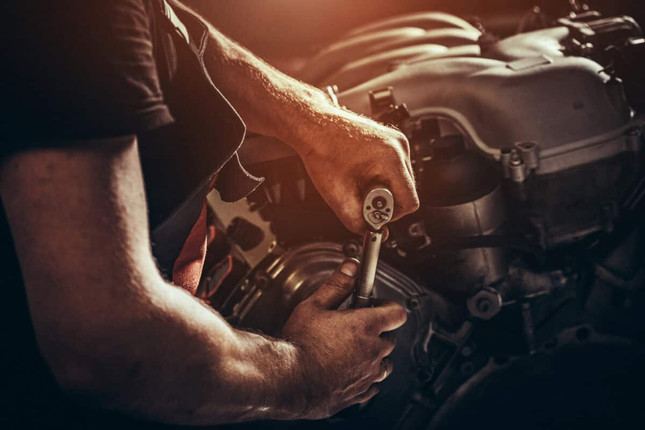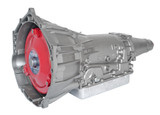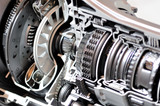Is a Transmission Tune up Necessary for My Cars Performance?
A vehicle's transmission is a vital component that helps ensure smooth operation and efficient power delivery. It is responsible for transmitting power from the engine to the wheels, allowing a vehicle to move. Regular transmission maintenance is essential to ensure that it continues to operate smoothly and efficiently. One of the essential aspects of transmission maintenance is transmission tune-up. Read on for why it is crucial to the longevity and performance of a vehicle.
What Is a Transmission Tune-Up?
A transmission tune-up is a comprehensive maintenance service that involves a range of tasks designed to improve the performance and longevity of a vehicle's transmission. A transmission tune-up typically involves several different components, including a fluid change, filter replacement, and adjustment of the transmission bands. Some transmission tune-ups may include additional services, such as a visual inspection of the transmission for leaks or damage and an inspection of the transmission pan gasket, fluid lines, and other components.
Other Components of a Transmission Tune-Up
In addition to a fluid change and filter replacement, a transmission tune-up may involve additional components to ensure the transmission performs at its best. Here are some other essential components that may be included in a transmission tune-up:
- Visual Inspection: A visual inspection of the transmission is integral to a transmission tune-up. A qualified mechanic will visually inspect the transmission for any signs of damage or leaks. They will also check the condition of the transmission fluid, which can reveal a lot about the condition of the transmission. A visual inspection can help catch any potential issues early, which can help prevent more expensive repairs down the line.
- Adjustment of Transmission Bands: Over time, the bands that control the transmission's shifting can become loose or misaligned. Adjusting the transmission bands can help improve the smoothness and accuracy of the shifting. This is an essential component of a transmission tune-up because poorly adjusted bands can cause the transmission to slip or shift incorrectly.
- Inspection of Transmission Pan Gasket: The gasket that seals the transmission pan to the transmission body can become worn or damaged over time. Inspecting the transmission pan gasket is a vital part of a transmission tune-up because a damaged gasket can cause fluid leaks. If the fluid leaks out, it can cause the transmission to overheat or fail.
- Inspection of Fluid Lines: The fluid lines carry the transmission fluid to and from the transmission. Over time, these lines can become corroded, leading to leaks or other issues. Inspecting the fluid lines can help identify any issues early and prevent more pricey repairs.
- Cleaning of the Transmission: Over time, the transmission can accumulate debris and other contaminants. Cleaning the transmission can help remove these contaminants, improving the transmission's performance and longevity.
- Replacement of Torque Converter: In some cases, the torque converter replacement might be necessary. The torque converter is an essential transmission component that helps transfer power from the engine to the transmission. If the torque converter is damaged or not working correctly, it can cause the transmission to slip or shift incorrectly. Ensure that the torque converter replacement is suitable for your transmission. For example, a 4L70/65E transmission would require a 10in Lock Up Converter.
- Replacement of Clutch: If your vehicle has a manual transmission, replacing the clutch might be necessary. The clutch is a critical component that allows you to engage and disengage the transmission from the engine. If the clutch is damaged or worn, it can cause the transmission to slip or shift incorrectly.
Why Is a Transmission Tune-Up Necessary?
A transmission tune-up is essential to the proper operation and longevity of a vehicle's transmission. Over time, the transmission fluid can become contaminated with debris and worn-out particles, which can cause damage to the transmission components. The transmission filter is designed to remove these contaminants but can become clogged and inefficient over time. A transmission tune-up replaces the old, contaminated fluid with fresh fluid and replaces the transmission filter, which helps to prevent damage to the transmission components.
Benefits
There are several benefits to having a transmission tune-up performed on your vehicle. Here are some of the most significant benefits:
- Improved Performance: A transmission tune-up can help improve your vehicle's performance by ensuring that the transmission operates smoothly and efficiently. The fresh fluid and new filter can help reduce friction within the transmission, which can help improve fuel efficiency and power delivery.
- Extended Life of the Transmission: Regular transmission maintenance can help extend the life of your vehicle's transmission. By replacing the old, contaminated fluid with fresh fluid and replacing the filter, you can help prevent damage to the transmission components.
- Reduced Risk of Transmission Failure: A transmission failure can be an inconvenient repair for any vehicle owner. By performing regular transmission maintenance, including a transmission tune-up, you can reduce the risk of transmission failure, which can help prevent expensive repairs and downtime.
- Improved Fuel Efficiency: A transmission tune-up can also help improve the fuel efficiency of your vehicle. By ensuring that the transmission operates smoothly and efficiently, you can help reduce the power lost due to friction within the transmission, improving fuel efficiency and saving you money on gas.
When Should You Get One?
The frequency of transmission tune-ups will depend on several factors, including the make and model of the vehicle, the driving conditions, and the mileage. As a general rule, it is recommended to have one performed every 30,000 to 60,000 miles. If you regularly tow heavy loads or drive in stop-and-go traffic, you may need to have one performed more frequently.
Some signs may indicate that it is time for a transmission tune-up. If you notice any of the following signs, it may be time to have your transmission serviced:
- Slipping Gears: If you notice that your vehicle is slipping out of gear or is struggling to shift gears, it may be a sign that the transmission fluid is low or contaminated. A transmission tune-up can help address this issue by replacing the old fluid with fresh fluid and replacing the filter.
- Grinding or Shaking: If you notice that your vehicle is grinding or shaking when you shift gears, it may be a sign that the transmission is not operating smoothly. A transmission tune-up can help improve the smooth operation of the transmission and reduce friction within the transmission.
- Delayed Shifting: If you notice that your vehicle is taking longer than usual to shift gears, it may be a sign that the transmission fluid is low or contaminated. A transmission tune-up can help address this issue by replacing the old fluid with fresh fluid and replacing the filter.
- Unusual Noises: If you hear any unusual noises coming from the transmission, such as whining or clunking, it may be a sign that the transmission is experiencing issues. A transmission tune-up can help identify and address any issues with the transmission before they become more severe and costly to repair.
Conclusion
Performing a transmission tune-up is crucial to maintaining your vehicle's transmission and ensuring it runs smoothly for longer. Regular transmission maintenance can help reduce the chances of transmission failure, prolong the life of your transmission, and increase your vehicle's fuel efficiency. Speak to a representative at Gearstar, or refer to the owner's manual for maintenance, repair, and more guidance.




